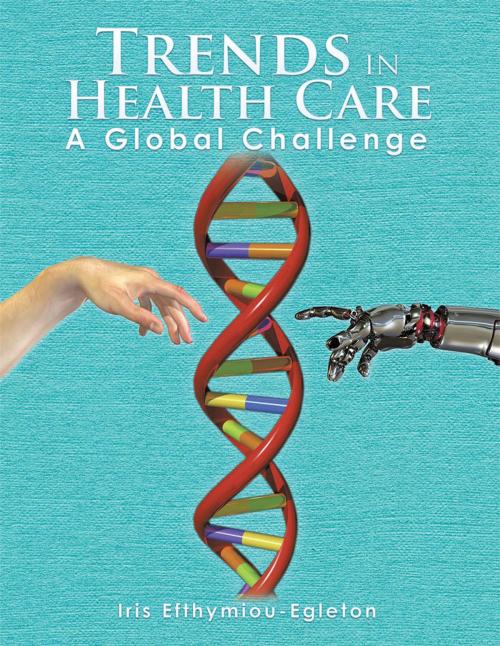Trends in Health Care
A Global Challenge
Nonfiction, Health & Well Being, Health, Health Care Issues, Reference & Language, Education & Teaching| Author: | Iris Efthymiou-Egleton | ISBN: | 9781514499313 |
| Publisher: | Xlibris UK | Publication: | June 16, 2016 |
| Imprint: | Xlibris UK | Language: | English |
| Author: | Iris Efthymiou-Egleton |
| ISBN: | 9781514499313 |
| Publisher: | Xlibris UK |
| Publication: | June 16, 2016 |
| Imprint: | Xlibris UK |
| Language: | English |
The book you are holding is an introduction to the questions which arise when considering the future of healthcare. It tackles the history of healthcare systems and their complex evolution, focuses on new trends and increasingly sophisticated technology while acknowledging that health is one of the highest human values. It sets out the main trends in the field of global health which will shape future healthcare systems. It reviews their development and specifies the major factors leading to their evolution by trying to answer the question Which global trends affect our health and healthcare services and how do they change over time? The writer also studies ways of managing changes in the demand for health services and aims to provide a tool for a fruitful dialogue concerning methods of adjusting supply. Prevention lies at the base of every successful health system. It is the key to a more healthy society and the reduction of healthcare expenditure. In a new era when everything is changing, the health sector cant remain unaffected; for example, have you ever heard of personalised medicine, evidence-based medicine, synthetic biology, or genetic aristocracy and many more new approaches? How is nanotechnology, the evolution of biotechnology, or the use of exoskeletons going to help us? Which are the new Amazons of the health and pharmaceutical sector and what good practices should policymakers can adopt? What new potential do we get from 3D printing? How are mobile technologies, location-based services, and advanced generation sensors going to change the way we demand and receive healthcare, and what challenges are we going to face? If you want to understand how healthcare systems operate, or what new trends are going to change the provision of health services? We must remember, however, that in suggesting solutions, those which are not affordable are not solutions.
The book you are holding is an introduction to the questions which arise when considering the future of healthcare. It tackles the history of healthcare systems and their complex evolution, focuses on new trends and increasingly sophisticated technology while acknowledging that health is one of the highest human values. It sets out the main trends in the field of global health which will shape future healthcare systems. It reviews their development and specifies the major factors leading to their evolution by trying to answer the question Which global trends affect our health and healthcare services and how do they change over time? The writer also studies ways of managing changes in the demand for health services and aims to provide a tool for a fruitful dialogue concerning methods of adjusting supply. Prevention lies at the base of every successful health system. It is the key to a more healthy society and the reduction of healthcare expenditure. In a new era when everything is changing, the health sector cant remain unaffected; for example, have you ever heard of personalised medicine, evidence-based medicine, synthetic biology, or genetic aristocracy and many more new approaches? How is nanotechnology, the evolution of biotechnology, or the use of exoskeletons going to help us? Which are the new Amazons of the health and pharmaceutical sector and what good practices should policymakers can adopt? What new potential do we get from 3D printing? How are mobile technologies, location-based services, and advanced generation sensors going to change the way we demand and receive healthcare, and what challenges are we going to face? If you want to understand how healthcare systems operate, or what new trends are going to change the provision of health services? We must remember, however, that in suggesting solutions, those which are not affordable are not solutions.















